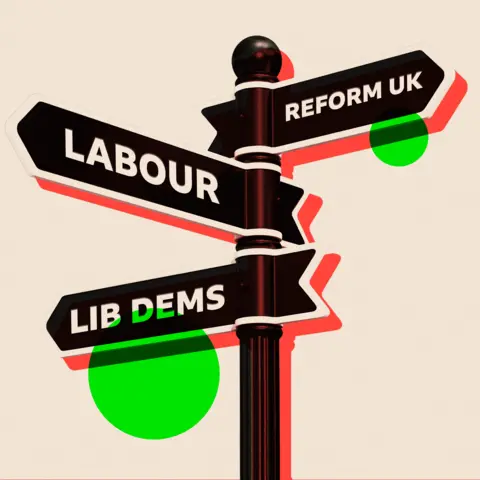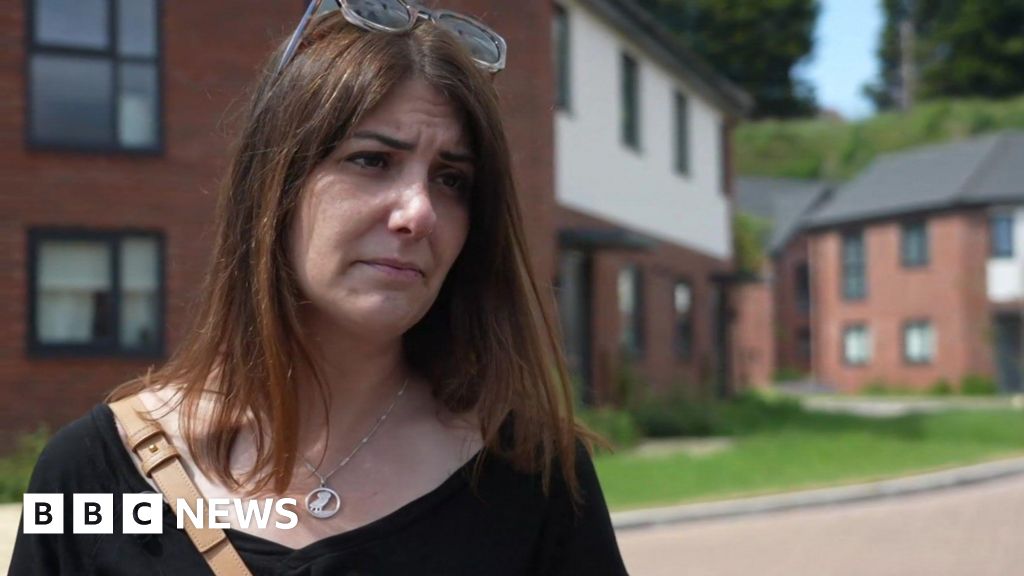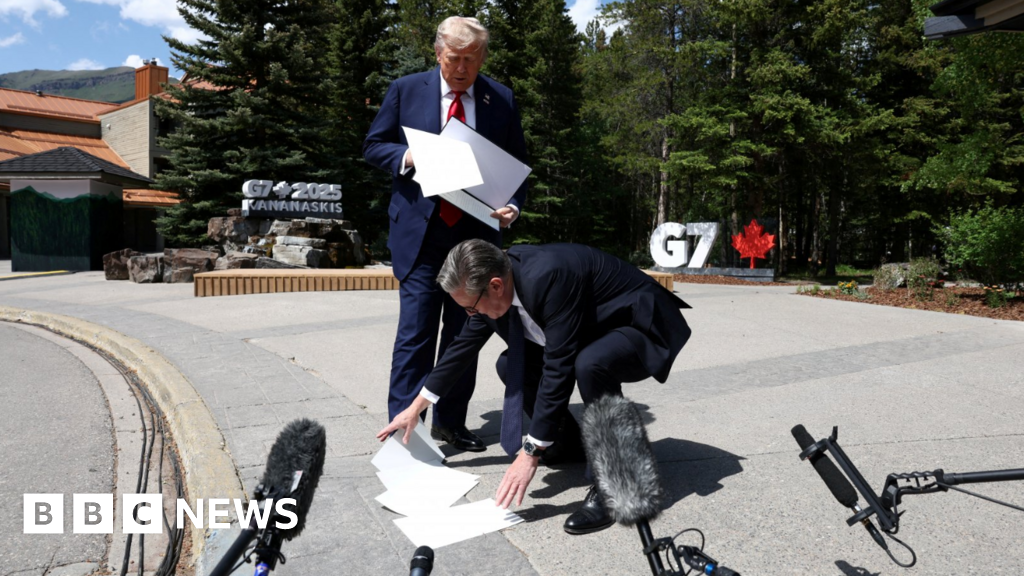ARTICLE AD BOX


15 minutes ago
By Henry Zeffman, @hzeffman,
Chief political correspondent

 BBC
BBC
The parliamentary Conservative party is dazed and confused, even grief-stricken.
Many knew a big defeat was coming, though some were in denial. All agree that the reality of life in opposition is even worse than expected.
“It’s like Lehman Brothers around here,” one Conservative MP muttered, as he saw yet another ousted colleague wander past carrying a cardboard box holding their belongings.
“There are a load of MPs I thought I’d be spending decades with in this place,” said another. “They’re really good mates. And almost all of them are gone. It’s a reminder of how vulnerable we all are.”
And here’s one of the few remaining members of the Conservatives’ vast 2019 intake: “It’s not great to feel like a greybeard when you’ve only been here four-and-a-half years.”
It’s in that emotional state that the remaining MPs need to start answering questions about where to go next. But they are in no hurry to do so. Indeed it’s hard even to know what the right questions are.
Most glaring and immediate, of course, is the question of who should succeed Rishi Sunak. The fact that no-one has yet declared their candidacy - and there appears to be no particular clamour for them to do so - tells its own story.
As one shadow cabinet minister put it: “Look at 1997 and look at 2005 - 2005 was a lot longer and went a lot better.”
In 1997, the last time the Conservatives were ejected from government, John Major was replaced by William Hague within 49 days. In 2005, it took seven months for David Cameron to be chosen to replace Michael Howard. Lord Hague’s four years as leader were forlorn, Lord Cameron led the Conservatives back into government.
“The question I hear people asking each other the most,” one Conservative MP said, “is who is our David Cameron?”
In some quarters, the drift towards a longer leadership election betrays a lack of enthusiasm for the likely candidates.
One influential backbencher suggested that postponing the start of the contest would allow MPs to see how the putative candidates take to the task of opposition, for example responding in the King’s Speech debate or tabling urgent questions to cabinet ministers.
For others, though, a long campaign is an opportunity to have a more fundamental debate about how the Conservatives should rebuild.
“The problem is we lost votes everywhere at once,” one MP on the right of the party said. “Lots want us to just think about the challenge from Reform, and we must, but we can’t ignore our other former voters.”
Consider a couple of constituencies for a moment.

 Getty Images
Getty Images
The Conservatives lost Boston and Skegness to Reform UK
After the 2019 general election, Boston and Skegness was the second-safest Conservative seat in the country. The party won 76.7% of the vote with Labour limping in second on 15.2%. Last week Reform UK claimed the seat, even though the Labour vote stayed roughly the same.
If every Conservative loss were like that, the party’s clear incentive would be to focus relentlessly on those voters they lost to Reform.
But then look at Stratford-on-Avon. At the 2019 election the Conservatives won this seat with 60.6% of the vote, way ahead of the Liberal Democrats on 24.3%.
Last week, the Liberal Democrats won the seat, the first time anyone but a Conservative had won there since 1906.
Yet the Conservative vote collapsed in more than one direction. Lots of votes were lost to the Liberal Democrats but Reform claimed 14.6% of the vote too.
If those votes had gone to the Conservatives, the party would have just clung on to the seat.

 Getty Images
Getty Images
Stratford-on-Avon now has a non-Tory MP for the first time since 1906
That’s before you even get on to all the seats where Conservative voters defected in large numbers to Labour.
But it’s far from straightforward to assume that Reform votes would have just flowed to the Conservatives without Nigel Farage’s involvement.
“Most Reform voters don’t like the Conservative Party,” says Rob Ford, professor of political science at the University of Manchester. “They courted them for two years and it did nothing.
“Conservatives assume that because most Reform voters backed the Tories in 2019 that they are low-hanging fruit, easy to win back. But this doesn’t follow. They feel let down by the Conservative Party, and just saying nice things to them isn’t going to cut it for them. Even if you can get some of them back you will lose others in doing so.”
Even those MPs who think the Conservatives need to prioritise the Reform UK vote admit there is uncertainty about what’s behind the party's surge.
“The big question about Reform is whether it’s just about immigration,” one MP on the right of the party said, “or whether it’s also about economics and trust. Some of us think it’s something much bigger, a bit like a Marine Le Pen moment.
“If we’re right, then it’s no good just pitching for Reform votes by going harder and harder on immigration, because you can never satisfy enough of them, and with some of them you wouldn’t want to. And in the meantime you’re turning off Lib Dems.”
Another Conservative said: “The answer is we need to find a way to appeal to voters we lost to all parties. I don’t know how you do that on policy, but Keir Starmer showed you can do it by looking competent and serious. But I don’t know if any of the candidates we have at the moment can do that.”
Others worry, though, that a long leadership contest will allow Labour to develop new arguments about their inheritance in government from the Conservatives, with the Conservative Party too distracted by internal wrangling to hit back.
“The only vulnerability Labour will leave us is on small boats - they really don’t have a plan,” one said. “But we won’t be able to beat them on that because of our record. So that leaves space for Reform.”
In opposition, though, the matter of attacking the government is mechanical as much as it is about narrative and policy.
And the stark reality of the Conservatives’ depleted ranks is that they are going to find it hard to be an effective opposition. There are likely to be somewhere between 80 and 90 government ministers to shadow. Appoint a shadow frontbencher to correspond to each one and you’re left with only about 30 backbenchers out of 121 MPs. That’s before two deputy speakers.
“I guess we’re going to have to pick and choose which jobs we really want to shadow,” one current shadow minister said. “There’s going to be lots of doubling up. I don’t know how that will all work.”
From the existential to the mundane - that’s the range of questions a traumatised Conservative Party now has to consider. And they don’t all think they will get it right.
“If there’s one thing this campaign has taught me,” one Conservative official said, “it’s that things can always get worse.”
BBC InDepth is the new home on the website and app for the best analysis and expertise from our top journalists. Under a distinctive new brand, we’ll bring you fresh perspectives that challenge assumptions, and deep reporting on the biggest issues to help you make sense of a complex world. And we’ll be showcasing thought-provoking content from across BBC Sounds and iPlayer too. We’re starting small but thinking big, and we want to know what you think - you can send us your feedback by clicking on the button below.

 11 months ago
37
11 months ago
37








 English (US) ·
English (US) ·